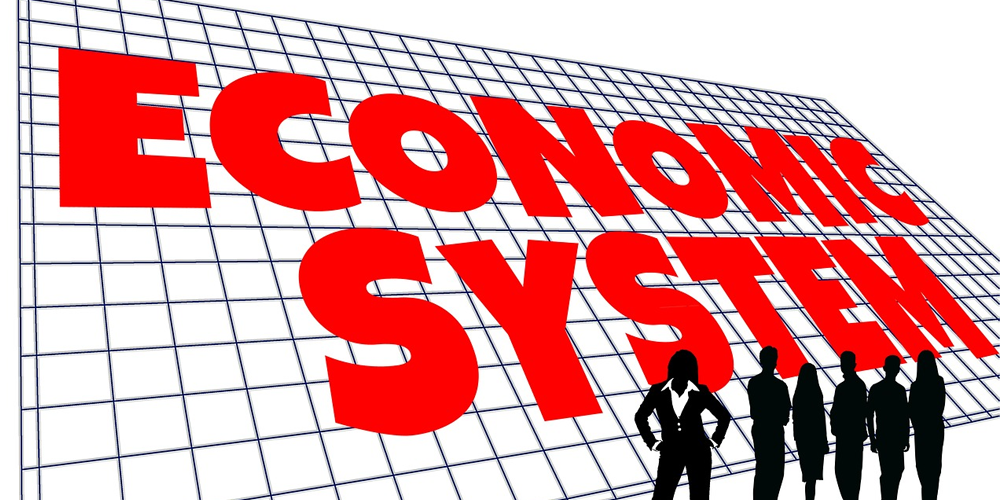Investigating an Economic Alternative, Part 4
Over the past three articles, we have dismantled the myths of capitalist efficiency, exposed the failures of privatisation, and demonstrated the necessity of public ownership as a democratic imperative. We have argued that nationalisation of key sectors of the economy and the use of cross-subsidisation would ensure equitable access to essential services and help return economic power to the working class and local communities.
However, nationalisation of industry alone is not socialism, nor can we say that a nationalisation program is in of itself a road to socialism. State ownership of key industries can occur under any political manifestation. In Ireland, a party like Sinn Féin, Labour, or even Fianna Fáil or Fine Gael could conceivably nationalise industries if it served their political interests and didn’t fundamentally challenge the hegemony of the ruling capitalist class. This would serve to merely accommodate or appease the working class without empowering it. Nationalisation under capitalism often serves as a temporary fix to stabilise the economy, historically to either dampen threats of radical and revolutionary political advancement (Post WWII Welfare States construction), to avert capitalist crisis (Nationalising Debt during the Great Recession), or to steer, plan and direct a war economy (US during WWII, Russia today) while maintaining the fundamental structures of private profit and class hierarchy. It does not challenge the profit-driven anarchy of the market.
Being conscious of this allows us to decipher the political choices available to us. What really truly separates a party of the working class from a party that appeases the working class isthe question of planning. A socialist economy is not just about nationalisation and state ownership—it is about rational, democratic planning to serve societal needs. Fundamentally though, one cannot plan an economy if it has no ownership of the economy, and therefore no control over the means of production, so taking ownership over key sectors of the economy is a prerequisite to a planned economy. It is important to remark that the state does not need to take over 100% of enterprises, but it does need to have ownership in enough enterprises and sectors of the economy to allow it to plan without the interference of private interests undermining national plans on infrastructural, agricultural and industrial projects. It is this essential question, where planning takes precedence over the free market, in satisfying the needs, wants and desires of society, that one can talk about transitioning from a capitalist mode of production to a socialist mode of production.
The Success of Planning: Contemporary lessons from China
One of the clearest examples of the power of planning is China’s economic rise. Through state-led industrial policy, infrastructure investment, and strategic development, China has lifted over 800 million people out of poverty in just a few decades, led by the political stewardship of the PCP. The Chinese state’s ability to control key industries, direct investment, and implement long-term economic strategies has allowed for sustained growth, technological advancement, and infrastructure development on a scale unprecedented in modern history. It has been able to do this due to a level of state ownership in mixed-ownership enterprises (MOEs) and state-owned enterprises (SOEs) in the Chineses economy. Unlike capitalist economies, where short-term profit motives dictate decision-making, China’s economy has been guided by Five-Year Plans, which set clear priorities for national development, technological innovation, and social progress. This model has demonstrated how planning can drive economic success without succumbing to the chaos of market speculation.
Capitalist Planned Economies: The Hypocrisy of the Market Ideologues
Ironically, the largest capitalist enterprises—Amazon, Walmart, Google, and others—do not function as ‘free markets’ internally. These corporations operate massive, complex supply chains, logistics systems, and production processes through rigorous planning. Amazon does not rely on the ‘invisible hand’ of the market to determine warehouse operations—it meticulously plans every aspect of its logistics and distribution. Walmart’s success is built on an internally coordinated supply chain that efficiently moves products across the globe. Google’s cloud infrastructure and data services are developed based on structured long-term investment strategies, not spontaneous market interactions. These companies demonstrate that planning is the only way to ensure efficiency and coordination on a large scale—yet when socialists propose planning the economy for the public good, it is dismissed as ‘impractical’, ‘inefficient’ and too large to plan-in-kind. The capitalists themselves know the power of planning, but its not in their interest to cheerlead planning as an economic imperative, they prefer to keep it in-house.
Planning as the only rational response to the Climate Emergency
Capitalism, by its very nature, is addicted to infinite growth, even though we live on a planet with finite resources. This contradiction is at the heart of climate change, environmental destruction, and the deepening ecological crisis. The drive for ever-increasing profits leads to deforestation, pollution, depletion of natural resources, and the reckless expansion of industry at the expense of the environment. Without a planned approach to energy, agriculture, and industrial production, humanity is on the path to climate catastrophe and mass extinction.
A planned economy is the only rational response to this crisis. By coordinating production, energy use, and resource management, a socialist system will have to prioritise sustainability over profit. Instead of chasing GDP growth at all costs, a planned economy would focus on human well-being, ecological balance, and long-term social development. Capitalist growth by contrast is cancerous—it expands uncontrollably, destroying everything in its path. Socialist planning offers the only viable alternative to this madness.
Conclusion: The Case for Socialist Planning
Public ownership of key industries is a necessary first step, but without democratic planning, it remains a tool that can be wielded by any ruling class to stabilise capitalism rather than abolish it. The real struggle is for an economy that serves the needs of the working class, not just one that accommodates them.
The most successful economies—whether socialist or capitalist, a nation or a firm—already rely on planning at various levels. The question is not whether planning works, but who owns the means of production, therefore who controls it and for what purpose. A socialist economy must be built on worker control, democratic decision-making, and long-term planning to ensure the survival of both humanity and the planet. The alternative—continuing down the road of capitalist chaos—is a future of crises, inequality, and environmental collapse.
In next month’s article we will delve a little deeper into the science of planning, where we will revisit the economic calculation debate and argue that advances in modern computing, AI, and big data have transformed the feasibility of planned economies and counter the false narratives surrounding socialist economic planning.
Parts 1 – 3 of this series can be found on the Socialist Voice website here:
Part 1: https://socialistvoice.ie/2025/01/public-versus-private-monopolies-investigating-an-alternative/
Part 3: https://socialistvoice.ie/2025/03/public-ownership-as-a-democratic-imperative/






